Posted on 1/7/2026
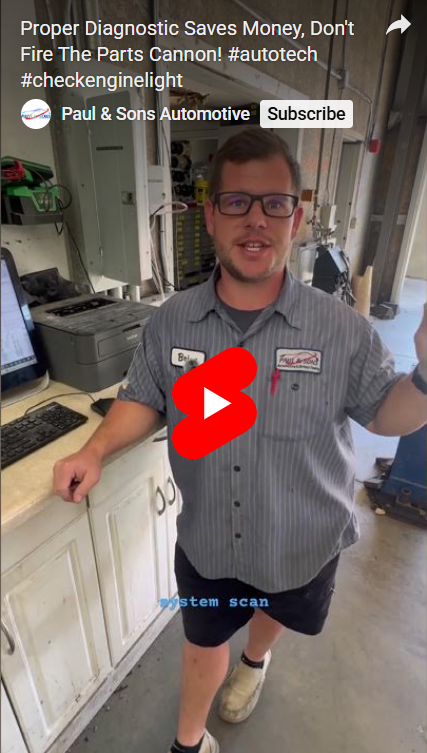
1. Gather Information (Customer Interview) Diagnostics start before touching the car. A technician asks questions like: What symptoms are happening? When did the issue start? Does it occur all the time or only under certain conditions? Were any repairs done recently? Are warning lights on? 👉 This step helps narrow the system involved and saves time later. 2. Verify the Concern The technician attempts to reproduce the problem: Test drive the vehicle Observe noises, vibrations, smells, or drivability issues Confirm dashboard warning lights If the problem can’t be verified, it’s much harder to diagnose accurately. 3. Perform a Preliminary Inspection This is a quick but critical visual and basic check: Fluid levels and condition Obvious leaks Loose or damaged wiring Broken hoses, belts, or connectors Battery condition and connections Many faults are found right here. 4. Scan for Diagnostic Trouble Codes (DTCs) Using a scan tool, the technician: Retrieves ... read more
Posted on 10/29/2025

Even the best scan tools can only point you in the right direction — real diagnostics take experience, testing, and the right tools. 🔧 At Paul and Sons Automotive, we don’t just replace parts based on a code — we find the root cause to make sure your vehicle is fixed right the first time
Posted on 10/6/2025
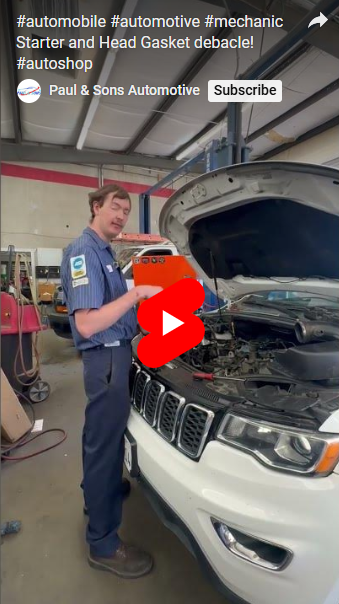
Few things strike fear into a car owner’s heart like the words “blown head gasket” or “cracked cylinder.” These issues aren’t just expensive — they can mean the difference between saving your engine or replacing it entirely. A head gasket seals the space between your engine block and cylinder head, keeping oil, coolant, and combustion gases where they belong. When it fails, symptoms include: White smoke from the exhaust (coolant burning) Milky oil or bubbling in the radiator Overheating and loss of coolant Rough idle or power loss A cracked cylinder, on the other hand, often results from prolonged overheating or poor maintenance. It can cause similar signs — misfires, coolant loss, and oil contamination — but the damage is deeper and harder to repair. Ignoring either problem can quickly turn a drivable car into a junkyard candidate. Regular cooling system maintenance, watching t ... read more
Posted on 8/25/2025
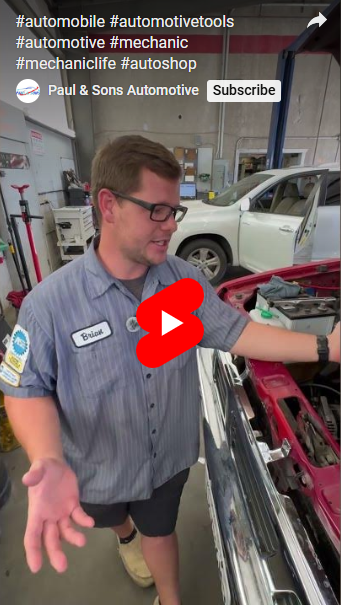
Why Timing Chains Matter in Your Truck’s Engine When it comes to truck maintenance, most drivers focus on oil changes, brakes, or tires — but what about the timing chain? Often overlooked, the timing chain is a crucial component that keeps your truck's engine running in sync. Unlike timing belts, which typically need replacement every 60,000 to 100,000 miles, timing chains are designed to last much longer — often the life of the engine. But don’t let that fool you into thinking they’re maintenance-free. Over time, timing chains can stretch or wear, leading to poor engine performance, rattling noises, or even catastrophic engine damage if they fail. For trucks that work hard — towing, hauling, or off-roading — extra stress on the engine can accelerate wear. If you're hearing odd noises from the front of the engine or noticing performance drops, it might be time to have that timing chain inspect ... read more
Posted on 8/6/2025
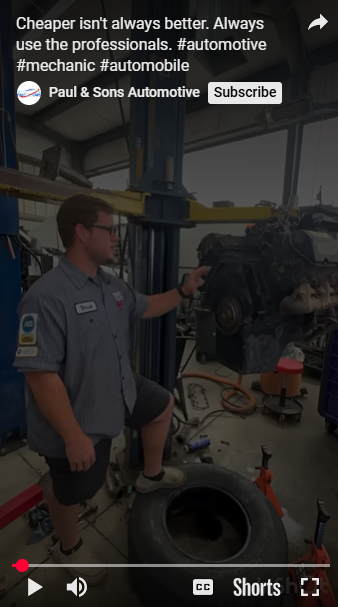
When it comes to car repairs, we all want to save money. So when someone offers to fix your vehicle for significantly less than a professional shop, it might seem like a no-brainer. But here’s the truth: going with the “cheaper guy” who works out of his garage and says he knows what he’s doing could end up being the most expensive decision you make. Here’s why it’s worth paying a little more for a licensed, insured professional shop: Certified Technicians Know What They're Doing Licensed shops are required to employ technicians who have been properly trained and certified. These techs understand modern automotive systems, use diagnostic tools correctly, and follow manufacturer guidelines — not guesswork. Insurance Protects YOU If something goes wrong — like a fire, accidental damage, or a test drive that ends in a crash — a licensed, insured shop has coverage. That means you won’t be left footing t ... read more
Posted on 7/29/2025
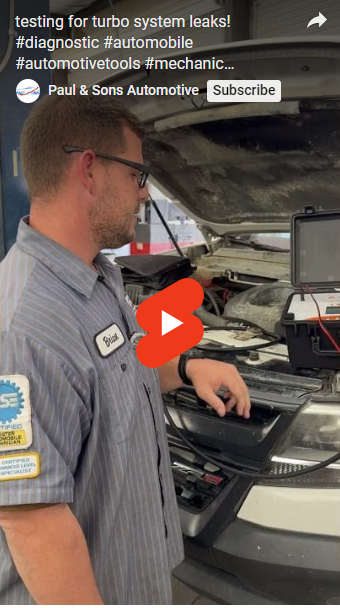
Smoke testing is a powerful diagnostic technique used in automotive repair, particularly effective in identifying leaks within turbocharged systems. In vehicles equipped with turbochargers, even the smallest leak in the intake, vacuum, or exhaust pathways can result in a significant drop in performance, turbo lag, overboost or underboost conditions, and poor fuel economy. This method involves introducing a dense, non-toxic smoke into the intake or vacuum system to visually trace the path of air and identify any unwanted escapes. When applied to turbocharged engines, smoke testing can reveal critical issues such as boost leaks at couplers, charge pipes, intercoolers, vacuum line cracks, or faulty gaskets. These leaks are often difficult to detect during normal operation because they may not cause immediate check engine lights or easily noticeable symptoms. By simulating engine operation without actual airflow or combustion, smoke testing allows technicians to pinpoint the location of a ... read more
Posted on 7/18/2025
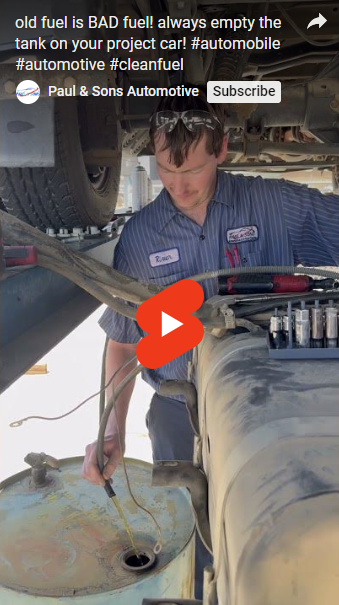
Fuel Degradation Gasoline begins to break down and lose its volatility after about 3–6 months (even faster with ethanol blends). Old fuel becomes gummy and sticky, which can: Clog fuel lines, filters, and injectors Make starting the engine difficult or impossible Reduce combustion efficiency 2. Water Contamination Over time, condensation can form inside a sitting fuel tank, especially if it's not full. This introduces water into the fuel system, which: Can cause rust inside the tank and lines Leads to poor engine performance May trigger corrosion in fuel system components 3. Sludge and Varnish Buildup Old fuel leaves behind residues that gum up critical components: Fuel pumps and injectors can seize or clog Carburetors (on older vehicles) may become unusable The fuel f ... read more
Posted on 7/7/2025
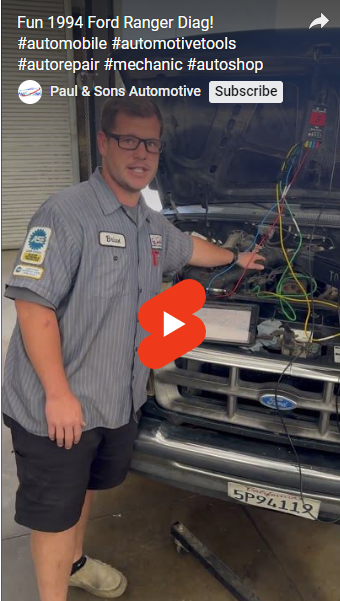
A four-channel oscilloscope is a powerful diagnostic tool used in the automotive industry to monitor and analyze electrical signals in real time. The "four-channel" part means it can measure and display four different signals simultaneously, which is especially useful in modern vehicles with complex electrical and electronic systems. Common Uses in Automotive Diagnostics: 1. Engine Performance AnalysisCamshaft and crankshaft sensors: Comparing timing signals to check for proper synchronization. Ignition systems: Monitoring primary and secondary ignition waveforms across multiple cylinders at once. 2. Fuel System DiagnosisInjector signals: Checking voltage and current draw of multiple fuel injectors for firing consistency. Fuel pump operation: Analyzing powe ... read more
Posted on 6/4/2025

The Engine Control Module (ECM) is essentially the brain of your truck’s engine. It manages and monitors various systems, ensuring optimal performance, fuel efficiency, and emissions control. From controlling the air-fuel mixture and ignition timing to overseeing idle speed and emission systems, the ECM plays a critical role in keeping your truck running smoothly. But like any electronic component, the ECM can develop issues over time. Common symptoms of a failing ECM include: Check Engine Light staying onEngine stalling or misfiringPoor fuel economyUnresponsive throttleHard starting or no start at allTransmission shifting problems (in ECM-integrated systems) Diagnosing a faulty ECM isn't always straightforward, as these symptoms can mimic other problems. A proper diagnosis often starts with a full scan of the onboard diagnostics (OBD) s ... read more
Posted on 5/23/2025
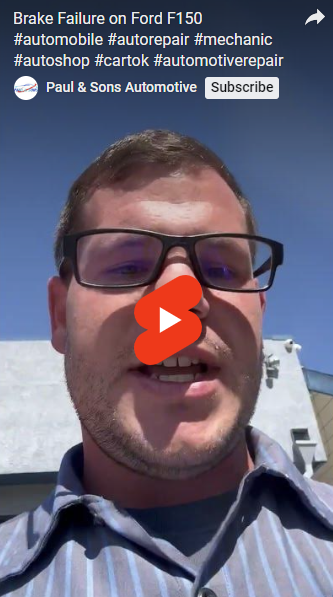
Let’s talk about a hidden hero in your Ford F-150’s braking system—the brake vacuum booster. It’s not flashy. It doesn’t make noise (unless something’s wrong). And most folks don’t even know it’s there. But when you’re cruising in a 5,000-pound truck, and suddenly need to stop on a dime, that booster might just be the reason you don’t end up in someone’s back seat. What Is a Brake Vacuum Booster, Anyway? Think of it as power steering for your foot. The brake vacuum booster multiplies the force you apply to the brake pedal using engine vacuum. Without it, your leg would need to work overtime just to slow down your truck. Here’s how it works: when you press the brake pedal, a valve inside the booster opens, allowing atmospheric pressure to assist the braking effort. This added force pushes on the master cylinder more effectively, so even a gentle tap gives you strong stopping power ... read more